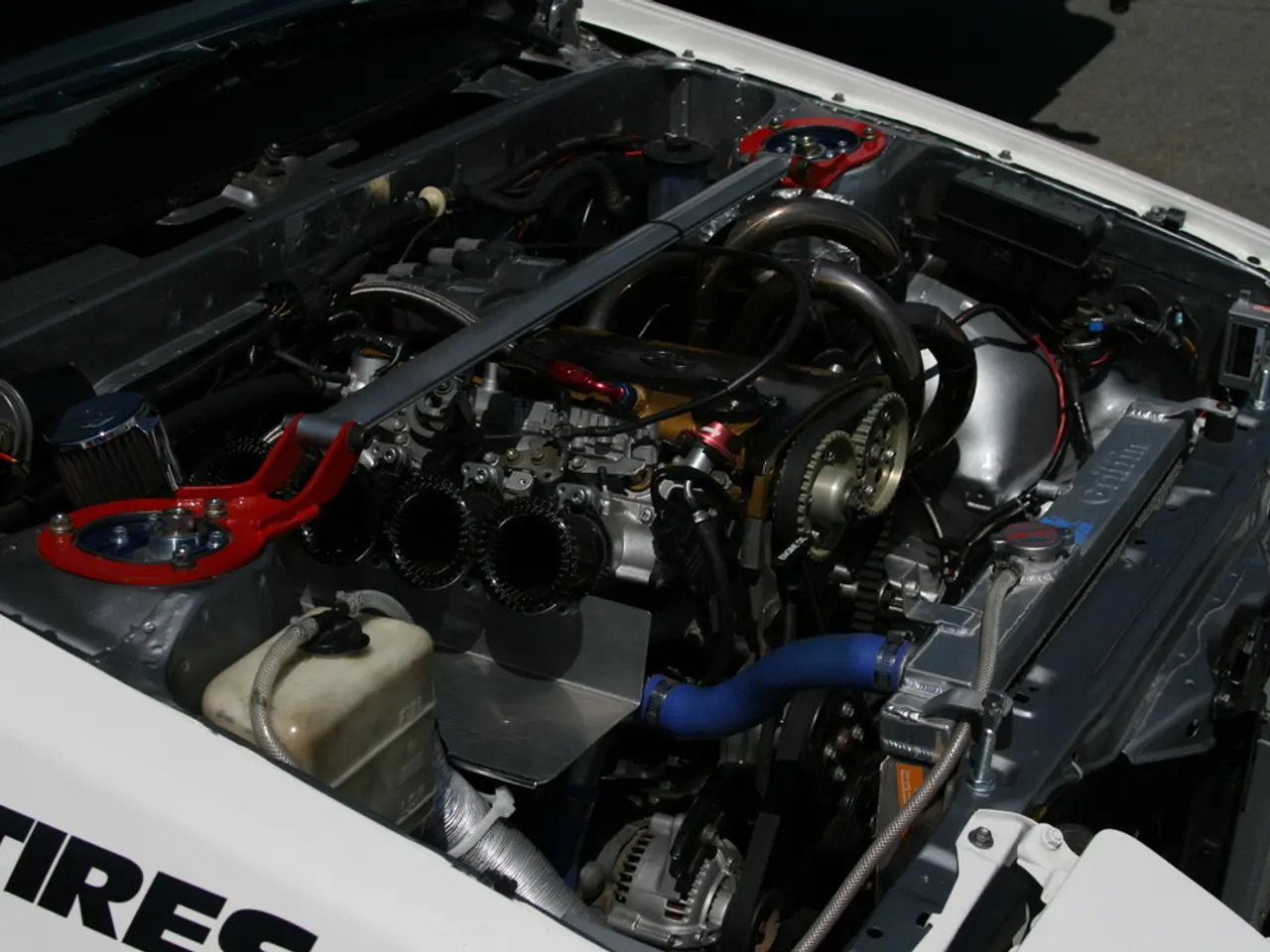Battery production journey has already begun, according to Economist Schularick - Environmental Protection Proposal Request for Commission Consideration
In an interview with the "Kieler Nachrichten", Moritz Schularick, the president of the Kiel Institute for the World Economy (IfW), highlighted the economic challenges faced by Europe and the USA in the race to develop and produce electric vehicle batteries.
Schularick pointed to several challenges for Europe and the USA in catching up with China's lead in EV battery production. These challenges include China's dominant production capacity and cost leadership, supply chain and raw material control, delayed or stalled European production projects, and more.
China's battery production exceeds domestic demand, with a 129.2 GWh production in June 2025 representing rapid growth and scale. Its production costs are 15-20% lower than European or North American counterparts due to advanced manufacturing efficiencies like AI-powered quality control, automation, and digital process optimization. This cost advantage makes it difficult for Europe and the USA to compete directly on price.
Moreover, China controls over 85% of key pre-product materials like cathode and anode components essential for batteries. Even South Korean and Japanese firms rely heavily on Chinese cathode and anode inputs, underlining China's dominance in the upstream supply chain. This entrenched supply chain advantage complicates the efforts of Europe and the US to build fully independent battery ecosystems.
Ambitious battery gigafactory projects in Europe, such as Germany’s Northvolt plant, have faced setbacks or abandonment, slowing Europe's capacity ramp-up compared to China's fast expansion and high yield.
To address these challenges, the strategies for Europe and the USA include building regional battery factories to enhance supply security, investing in innovation and emerging battery technologies, enhancing battery recycling and sustainability approaches, and strengthening industrial policy and investment support.
Schularick's comments further highlight the economic challenges faced by Europe in the race to develop and produce electric vehicle batteries. The Northvolt insolvency is estimated to cost the taxpayers in Schleswig-Holstein an unspecified amount. The federal government and the state each guaranteed half of the 600 million euros loaned to Northvolt, but the money has not yet been paid out.
Schularick suggested that the West would need to subsidize the setup of mass production with enormous sums to compete with China in battery production. An additional 20 million euros were earmarked for interest and procedural costs for Northvolt.
Schularick stated that Europe's and the USA's competitiveness in battery production is significantly behind China's. The comments by Schularick suggest that Europe and the USA may struggle to catch up with China in battery production without substantial financial investment.
In conclusion, Schularick and aligned analyses indicate the core hurdles for Europe and the USA are China's scalable, cost-efficient production and integrated control over raw materials, coupled with their own slower capacity growth and supply chain gaps. Their strategies focus on local capacity building, technological innovation, and supply chain diversification to close these gaps over the coming years.
- The economic challenges in the race to develop and produce electric vehicle batteries, as highlighted by Schularick, include the need for Europe and the USA to strengthen their industrial policy and investment support, to catch up with China in battery production.
- The competitiveness of Europe and the USA in battery production is significantly behind China's, and to compete, they may need to subsidize the setup of mass production with enormous sums, as suggested by Schularick.




